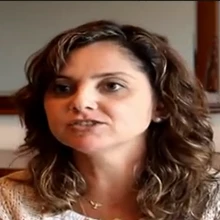Claudia Baddini is Director of the Unified Registry of Social Programs in Brazil.
For Brazil, the Single Registry — called Cadastro Unico — serves as the backbone for its social programs (such as Bolsa Familia). It was introduced in the early 2000s and now serves as the country’s largest and most comprehensive database on poor households and individuals. It also stands out as an example of best practices for countries eager to use Management Information Systems to identify the socio-economic profile of their poor people.

We recently asked Claudia Baddini, Director of Cadastro Unico, about lessons learned so far. She stresses the importance of integrating job generation programs with social assistance and creating an anchor program that encourages people to register. The idea is that by reducing the transaction costs of social programs, the Single Registry makes it possible to not only include all poor families but also to know their socio-economic characteristics—and therefore better target social programs.
This post was first published on the Jobs Knowledge Platform.


Join the Conversation